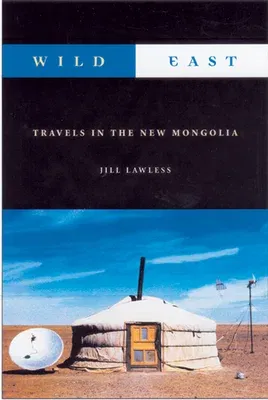For most of us, the name Mongolia conjures up exotic images of wild
horsemen, endless grasslands, and nomads -- a timeless and mysterious
land that is also, in many ways, one that time forgot. Under Genghis
Khan, the Mongols' empire stretched across Asia and into the heart of
Europe. But over the centuries Mongolia disappeared from the world's
consciousness, overshadowed and dominated by its huge neighbours --
first China, which ruled Mongolia for centuries, then Russia, which
transformed the feudal nation into the world's second communist state.
Jill Lawless arrived in Mongolia in the late 1990s to find a country
waking from centuries of isolation, at once rediscovering its heritage
as a nomadic and Buddhist society and simultaneously discovering the
western world. The result is a land of fascinating, bewildering
contrasts: a vast country where nomadic herders graze their sheep and
yaks on the steppe, it also has one of the world's highest literacy
levels and a burgeoning high-tech scene. While trendy teenagers
rollerblade amid the Soviet apartment blocks of Ulaanbaatar and dance to
the latest pop music in nightclubs, and the rich drive Mercedes and surf
the Internet, more than half the population still lives in felt tents,
scratching out a living in one of the world's harshest landscapes.
Mongolia, it can be argued, is the archetypal 21st-century nation, a
country waking from a tumultuous 20th century in which it was wrenched
from feudalism to communism to capitalism, searching for its place in
the new millennium. This is a funny and revealing portrait of a
beautiful, troubled country whose fate holds lessons for all of us.

